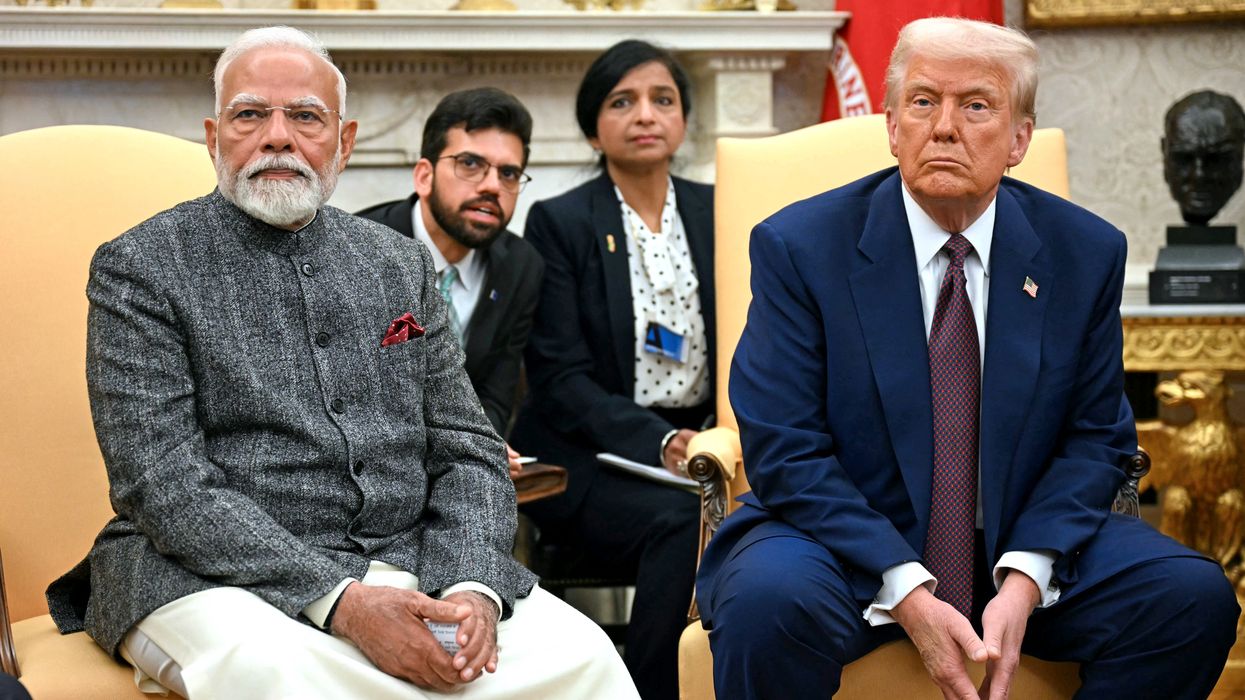Highlights
- US tariffs on Indian imports rise to as much as 50 per cent
- Nearly 55 per cent of India’s $87bn exports to US could be affected
- Exporters warn of job losses and call for loan moratoriums
- India says support measures will be offered to affected exporters
US PRESIDENT Donald Trump’s doubling of tariffs on Indian imports took effect on Wednesday, raising duties on some shipments to as much as 50 per cent. The move escalates trade tensions between India and the United States.
A 25 per cent tariff announced earlier in July was followed by another 25 per cent duty linked to India’s purchases of Russian oil, taking total tariffs to as high as 50 per cent on items such as garments, gems and jewellery, footwear, sporting goods, furniture and chemicals. These rates are on par with those imposed by the US on Brazil and China.
The new tariffs are expected to affect thousands of small exporters and jobs, including in prime minister Narendra Modi’s home state of Gujarat. Exporter groups estimate nearly 55 per cent of India’s 87 billion dollars in merchandise exports to the US could be impacted, benefiting competitors such as Vietnam, Bangladesh and China.
ALSO READ: Tariff surge threatens one-third of India’s diamond exports
Failed trade talks
India and the US have held five rounds of talks since April to try to reach a trade agreement, but differences over access to India’s farm and dairy sectors, as well as India’s rising imports of Russian oil, led to a breakdown.
Officials on both sides blamed political misjudgment and missed signals for the collapse. US Census Bureau data shows their two-way goods trade totalled 129 billion dollars in 2024, with a US trade deficit of 45.8 billion dollars.
White House trade adviser Peter Navarro confirmed the new tariffs would take effect as announced. “Yeah,” he said when asked if the increased tariffs on India’s exports would be implemented on Wednesday.
Indian officials had earlier indicated hope that US tariffs could be capped at 15 per cent, the rate applied to some other US trade partners including Japan, South Korea and the European Union.
ALSO READ: India is 'Maharaja in tariffs', US trade advisor says
Sectors hit and exemptions
The additional tariffs will affect goods such as textiles, chemicals and leather. Exporters say this could create a price disadvantage of 30–35 per cent compared to competitors.
“The move will disrupt Indian exports to the largest export market,” said SC Ralhan, president of Federation of Indian Export Organisations. He suggested the government provide a one-year moratorium on bank loans for affected exporters, besides extending low-cost credit and easier loan access.
A US Customs and Border Protection notice allows a three-week exemption for Indian goods shipped before the deadline. These shipments can enter the US under the earlier lower tariffs until September 17.
Steel, aluminium and derivative products, passenger vehicles, copper and other goods subject to separate tariffs of up to 50 per cent under the Section 232 national security trade law remain exempt.
India’s response
India’s Commerce Ministry did not immediately respond to requests for comment. However, an official said on condition of anonymity that exporters hit by the tariffs would be given financial assistance and encouraged to diversify to markets such as China, Latin America and the Middle East.
ALSO READ: India to Continue US Trade Talks Despite Tariff Hike
Rajeswari Sengupta, an economics professor at Mumbai’s Indira Gandhi Institute of Development Research, said a weaker rupee could provide indirect support to exporters by helping them regain competitiveness.
Officials say trade talks with the US are continuing. India has not announced any change in its stance on Russian oil purchases. Russian officials in New Delhi have said Moscow expects to continue supplying oil to India.
Broader ties
Despite the tariff dispute, both countries have stressed their broader strategic partnership. On Tuesday, the US State Department and India’s Ministry of External Affairs issued identical statements saying senior officials met virtually and expressed “eagerness to continue enhancing the breadth and depth of the bilateral relationship.”
Both sides also reaffirmed their commitment to the Quad grouping, which includes the US, India, Australia and Japan.
(With inputs from agencies)





